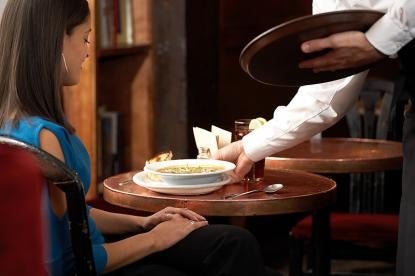In a 7-0 decision published on April 12, 2012, the California Supreme Court issued its decision in the long-pending Brinker Restaurant v. Superior Court case. The decision resolved many of the outstanding issues in California's meal and rest break laws largely agreeing with the positions asserted by California employers.
The issues that were most watched in the case involved interpretation of California's meal period requirements. The two main issues included (1) whether an employer must ensure that each employee have a duty-free meal period or need only authorize and permit its employees to take a meal period; and (2) the timing requirements of such meal periods (plaintiffs had argued that the law requires a meal period after every five hours worked). The Court ruled in favor of the employer on both main issues.
In deciding that an employer need only relieve the employee of duty to comply with the meal period requirements, the Court stated: "the employer is not obligated to police meal breaks and ensure no work thereafter is performed. Bona fide relief from duty and the relinquishing of control satisfies the employer's obligations, and work by a relieved employee during a meal break does not thereby place the employer in violation of its obligations and create liability for premium pay." Thus, while an employer must relieve the employee of work duties during the employees' meal break, an employer is not required to ensure that the employee is not working. In essence the employee can do whatever that employee wants to do during his or her meal break, including working, if that employee wants to work. Though employers should be pleased not to be held to the unworkable "ensure" standard, employers should review their policies to confirm that those policies are consistent with this new articulation of the meal break standard.
The Court also rejected Plaintiff's argument that employees are entitled to a meal break after every period of five hours of work. In ruling against the "rolling 5" standard sought by Plaintiffs, the Court held: "section 512 requires a first meal period no later than the end of an employee's fifth hour of work, and a second meal period no later than the end of an employee's 10th hour of work. We conclude further that, contrary to [plaintiff's] argument, Wage Order No. 5 does not impose additional timing requirements."
The court also clarified various rest period issues. Importantly, and again contrary to the plaintiff's position, the court ruled that rest periods are independent of meal-period scheduling, meaning that they need not necessarily be arranged in any particular way around meal breaks. For example, a 10-minute rest break does not necessarily need to be taken before an employees' first 30-minute meal break, as argued for by the plaintiff, it can be taken after, so long as the correct number of each type of break is taken. The court also wrote, however, that, during an 8-hour shift, "'[a]s a general matter,' one rest break should fall on either side of the meal break." The court also clarified the required timing of rest periods in ruling that "employees are entitled to 10 minutes' rest for shifts from three and one-half to six hours in length, 20 minutes for shifts of more than six hours up to 10 hours, 30 minutes for shifts of more than 10 hours up to 14 hours, and so on."
In another clarifying point, the Court reiterated that a trial court can review certain merits issues at the certification stage: "to the extent the propriety of certification depends upon disputed threshold legal or factual questions, a court may, and indeed must, resolve them. Out of respect for the problems arising from one-way intervention, however, a court generally should eschew resolution of such issues unless necessary." This portion of the ruling is similar to the recent holding of the United States Supreme Court in Wal-Mart v. Dukes.
Though the Brinker decision is generally beneficial for employers, the implications of the case should be discussed with experienced counsel.


 i
i


